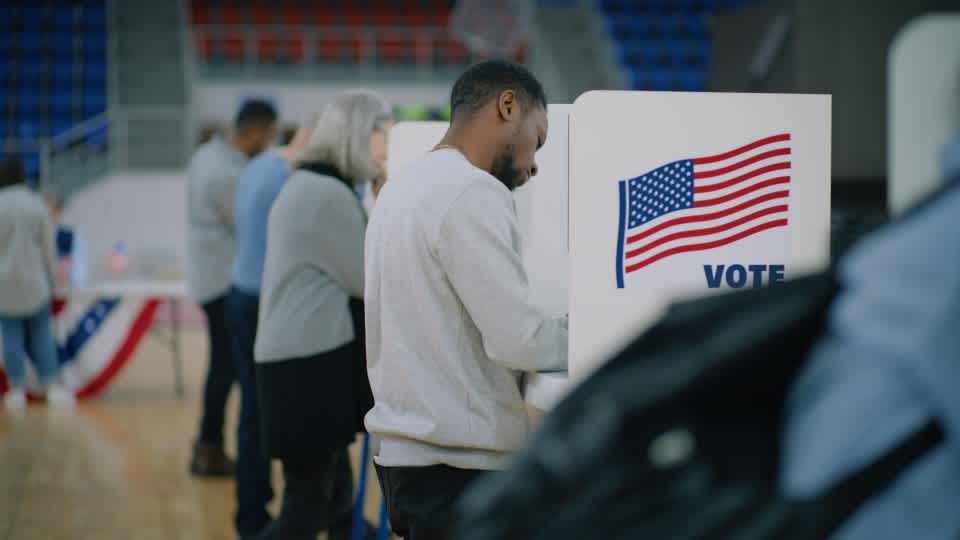
Museum Voices: Why taking action for science matters to democracy
We’ve all heard the statement, “Voting is your civic duty.” It’s true – voting is one of the most important things we can do to make our voices heard and effect change. But what role does science play in our democracy, and how can we factor it into our decisions when we vote?
At the Science Museum of Minnesota, we envision a world where everyone has the power to use science to make lives better. So, we’ve brought together scientists, researchers and leaders to share why science matters in a democracy and how you can “turn on the science” with your vote.
Why does science matter in our democracy?
Science is key to solving worldwide challenges and improving life for everyone, especially people in marginalized communities. By inspiring learning and using science to inform policy, we can take big steps to create positive social change.
So, how exactly can we do that?
Robby Callahan Schreiber, the Science Museum of Minnesota’s Director of Museum Access & Equity, has some insights.
“Centering equity in science requires us to ask critical questions like, ‘who is most impacted? and why?,’ and make sure the right people are at the table from the beginning of the work,” he said. “There are multiple ways of understanding and observing our world and when we create equitable scientific practices we center the needs, values and approaches of those who are most impacted.”
Robby explains that by using science as a tool to observe and question the world around us, we can grow our critical thinking skills and come up with better solutions that improve the world for everyone.
But like anything, science is a work in progress. Over time, many people have been harmed by science, as it has been used historically to justify systems of oppression. By centering the voices of Black, Indigenous, people of color, LGBTQ+ people, people with disabilities and other marginalized communities that have been harmed by and actively excluded from engaging in science, we can pave the way for a more sustainable and effective democracy.
"When we look at the origins of the words, science literally means ‘to know’ and democracy literally means ‘rule by the people.’ Acknowledging and honoring this history means we must create systems of practice that inclusively embrace as wide a set of viewpoints and perspectives as possible, recognizing the humanity and values embedded in each person within our political or other organizing systems,” he explained.
How is science used to inform policy?
Democracy and science have something in common – they both revolve around people and their experiences.
“Scientists study the world around us and our bodies, too, to understand how things work,” explains Dr. Laurie Fink, Chair of Science at the Science Museum of Minnesota. “Policymakers can take this information to craft the policies that improve the lives of all people.”
Policymakers and other people in power can make big changes to many aspects of science that impact our daily lives. Climate change, pollution and access to health care are some of the most pressing matters of today. How elected officials decide to act – or not act – on these and other science-based issues can significantly alter the quality of life for millions of people.
By advocating and voting for candidates who use science to make the world a better place, we can build a strong foundation for addressing society’s most critical issues.
Scientists approach democracy like they approach research—with perseverance
Researchers spend days, months and years figuring out answers to their hypotheses. Jim Weil, a Research Associate who uses Science Museum of Minnesota collections to uncover new insights about anthropology, believes that “Science is critical to the world because it channels the most significant characteristic of the human species: imagination.”
In Jim’s own words, science is a way to funnel perceptions, dreams, and hopes into a systematic process that reveals the cause and effect behind occurrences we observe every day.
In summary: Science can be used as a tool to analyze the world and make decisions based on what we find.
Jim has been researching Costa Rican ceramics for more than three decades. Staying committed to scientific research is a lot like learning and taking action to inform policy: Stick with it, and you’ll learn a lot about yourself— and the world—along the way.
What does taking action for science look like?
Taking science into consideration is the first step when evaluating candidates and getting involved. But how can you integrate science into your personal and political choices in a meaningful way?
One method – speak up. There are many ways to make your voice heard: voting, contacting your representatives, attending local government meetings, volunteering at local events, supporting nonprofits that you believe in, or even being a part of protests or strikes.
First, find areas of science that you’re informed and passionate about and then, take action. In a busy world, keeping track of the latest scientific findings can be tricky, but there are several easy (and fun!) resources to stay informed:
Read science content
Listen to science-based podcasts
Talk to people about science and what they are learning about
Subscribe to science news from scientific organizations – like us!
Before you’re ready to vote, it’s vital to understand where candidates stand on scientific topics. Dr. Fink offers some helpful questions to ask candidates before voting:
Where do you get your science-based information?
How will you integrate scientists into future decision-making?
How are climate change and racial justice connected?
Are you excited to vote?
We are too! Visit vote.gov to learn more about voting requirements and make a voting plan.
Need a quick rundown of how the electoral college works and why you should care? We've got one.